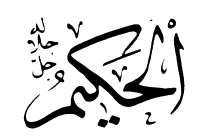Why are we stuck on earth?
Depending on one's religious belief (or one's lack of it thereof), you'll get different answers. I can't really say for every other religious belief, but I do believe that for most of the people of the Abrahamic faiths (Muslims, Christians and Jews), their answer would be because the first man created by God Almighty defied His command by eating from a forbidden tree and was thus banished to the Earth and his wife Eve (we Muslims call her Hawa) along with him.
If I didn't know better, that would've probably been my answer as well. However, a study of the Quran reveals that that's not entirely true.
You see, according to the Quran, Allah SWT has already decided before Adam AS ('alaihissalam - peace be upon him) was created, that he was to be placed on earth.
وَإِذْ قَالَ رَبُّكَ لِلْمَلَائِكَةِ إِنِّي جَاعِلٌ فِي الْأَرْضِ خَلِيفَة
|
And (remember) when your Lord said to the angels, "Verily, I will create a *khalifah on earth" (Al-Baqarah, 2:30)
This might raise a particular question: if God really intended for Adam AS to be placed on earth, why was he put in Paradise in the first place? That is a very valid question; one that the Allah SWT did not forget to address in His Book:
وَقُلْنَا يَا آدَمُ اسْكُنْ أَنْتَ وَزَوْجُكَ الْجَنَّةَ وَكُلَا مِنْهَا رَغَدًا
حَيْثُ شِئْتُمَا وَلَا تَقْرَبَا هَٰذِهِ الشَّجَرَةَ فَتَكُونَا مِنَ الظَّالِمِينَ |
We said: "O Adam! Dwell you and your wife in Jannah (Garden / Paradise); and eat of the bountiful things therein as (where and when) you will; but approach not this tree, or you run into harm and transgression." (Al-Baqarah, 2:35)
The Arabic Language has a few words that means 'to live 'or 'to dwell', the most common of which is 'khuld'. For instance when in the following ayah, which describes the people who will live forever in Paradise, the word 'khaalidiin' which is a derivative of the word 'khuld' is used:
| جَزَاؤُهُمْ عِنْدَ رَبِّهِمْ جَنَّاتُ عَدْنٍ تَجْرِي مِنْ تَحْتِهَا الْأَنْهَارُ خَالِدِينَ فِيهَا أَبَدًا ۖ رَضِيَ اللَّهُ عَنْهُمْ وَرَضُوا عَنْهُ ۚ ذَٰلِكَ لِمَنْ خَشِيَ رَبَّهُ |
However, the word used in the aforementioned ayah isn't 'khuld' but 'uskun' ."Uskun' comes from the root word 'sukun' which means something that was in motion but stops temporarily and will afterwards continue to move (those of you who remember your tajweed should be familiar with this word). By using this word in the ayah, Allah SWT is telling Adam AS - and by extension, us- that his place in Paradise was only temporary and that he will have to move to his actual abode, earth, sooner or later. You can think of it as a transit before the final destination. Had it been a permanent stay, the word that would be the most appropriate to use is 'ukhlud' and not 'uskun' which, as mentioned above, implies the meaning of it being temporary.
Adam AS himself understood this and was aware that they won't be staying in Paradise forever, and Iblis - the Devil - used this knowledge to tempt Adam AS and Hawa into eating from the forbidden tree
| وَقَالَ مَا نَهَاكُمَا رَبُّكُمَا عَنْ هَٰذِهِ الشَّجَرَةِ إِلَّا أَنْ تَكُونَا مَلَكَيْنِ أَوْ تَكُونَا مِنَ الْخَالِدِينَ |
Another common misunderstanding about this story is that Adam AS and Hawa was banished to earth because of their sin of disobeying the Lord and eating from the tree. This, however, isn't the real reason because Allah SWT clearly says in the narrative in surah Al-Baqarah that He had accepted their repentance.
Then learnt Adam from his Lord words of inspiration and his Lord turned toward him (accepting his repentance); for He is Oft-Returning, Most Merciful. (al-Baqarah, 2: 37)
If they were forgiven, it wouldn't make much sense for them to be banished to earth as a punishment wouldn't it?
This further enforces the notion that neither Adam AS nor his spouse are to be blamed for the human race to be put on earth. This is clearly a misconception that needs to be set straight especially among the Muslims. We must realize that our place on earth is a matter that has always been decided. It is only after we have proven ourselves worthy of Paradise in this world that we will be allowed to live there in the hereafter.
Wallahua'lam - Allah knows best.
| فَتَلَقَّىٰ آدَمُ مِنْ رَبِّهِ كَلِمَاتٍ فَتَابَ عَلَيْهِ ۚ إِنَّهُ هُوَ التَّوَّابُ الرَّحِيمُ |
If they were forgiven, it wouldn't make much sense for them to be banished to earth as a punishment wouldn't it?
This further enforces the notion that neither Adam AS nor his spouse are to be blamed for the human race to be put on earth. This is clearly a misconception that needs to be set straight especially among the Muslims. We must realize that our place on earth is a matter that has always been decided. It is only after we have proven ourselves worthy of Paradise in this world that we will be allowed to live there in the hereafter.
Wallahua'lam - Allah knows best.
* * * * * * * *
*Khalifah is an Arabic word literally meaning "one who replaces someone else who left or died" (taken from http://islamic-world.net/khalifah/definition.htm)**image taken from http://socialtimes.com





















